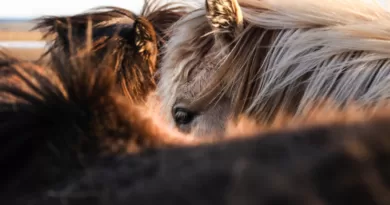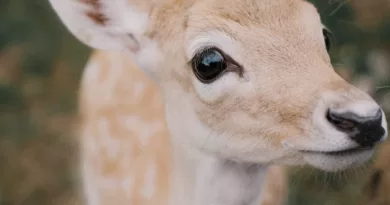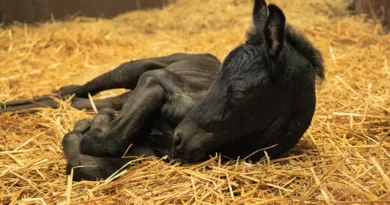How long do horses live? Amazing Facts About Horses’ Life
Have you ever wondered how long horses live? As horse owners, it’s important to know the estimated life spans of our beloved equine companions. As well as understand any factors that may affect a horse’s longevity. In this post, we’ll dive into the Lifespan of various horse breeds and discuss what can be done to maximize their years with us.
Why Do Horses Live Longer?
Horses can live long, healthy lives due to their natural hardiness and the care they receive from humans. They have become more resistant to disease, withstand climatic challenges, and exist on minimal nutrition in the wild.
However, due to advances in equine nutrition, supplemented by modern health care protocols, horses today can enjoy an even healthier and longer lifespan than generations ago. Furthermore, advances in veterinary medicine have enabled us to recognize signs of illness or injury sooner than ever.
Ultimately, it is the combination of factors, including genetics plus proper diet and veterinary attention. That ultimately helps horses live longer and happier lives.
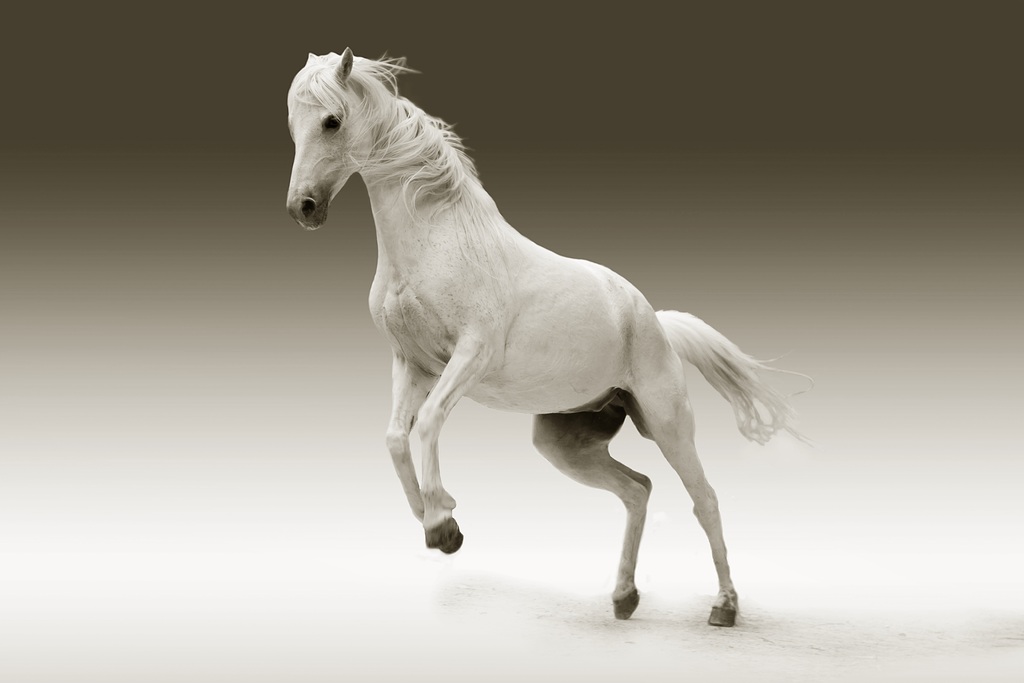
Life Stages of Horses
Horses have a lifespan of approximately 25-35 years and usually reach maturity at four. They have several life stages – colt, juvenile, adult, and aged – in which they experience physical and emotional changes.
| Horse | Age |
|---|---|
| Foal | 1 year |
| Yearling | 1-2 years old Horses |
| Filly | Female Horses under the age of 4 years |
| Colt | Male Horses under the age of 4 years |
| Mare | Female Horses over 4 years old |
| Stallion | Non-castrated male Horses over 4 years old |
| Gelding | Castrated Male Horse |
- Colts are young horses between birth to two years old. They are particularly energetic, playful and relatively undomesticated at this Stage.
- Juvenile phase About two to five years old is when horses enter the juvenile phase. They become mature but maintain their playfulness and energy.
- Adult Stage At four or five years old, horses become adults. Attentive to physical training and understanding human commands as the discipline becomes essential for life as a working animal.
- Elderly or aged Stage After about 20 years, physical abilities begin to deteriorate. Horse owners may place their animals into elderly or aged stages of life. Where care is focused on supporting them in their last few years of life.
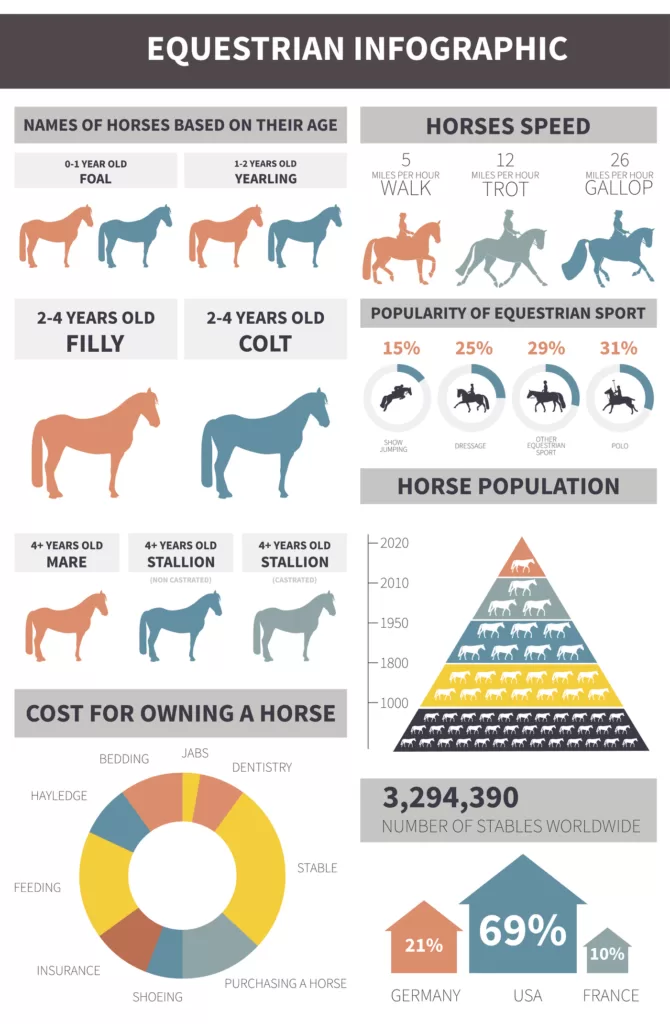
Life Span of Horses
Horses have been a part of human society for centuries. They have adapted to many climates, terrains, and living conditions, from the diminutive Shetland Pony to the majestic Warmbloods and Friesians. Each breed has characteristics that make it unique.
Regarding life span, horses can typically live up to 25-30 years on average with proper care, nutrition and regular veterinary visits. Living into their late twenties is highly correlated with good care. But horses have been known to live well over 30 years with appropriate management.
Beyond their lengthy Lifespan, horses are special because they form strong emotional attachments to humans and other equine companions. With long lifespans often comes wisdom and an unrivalled bond between horse and keeper.
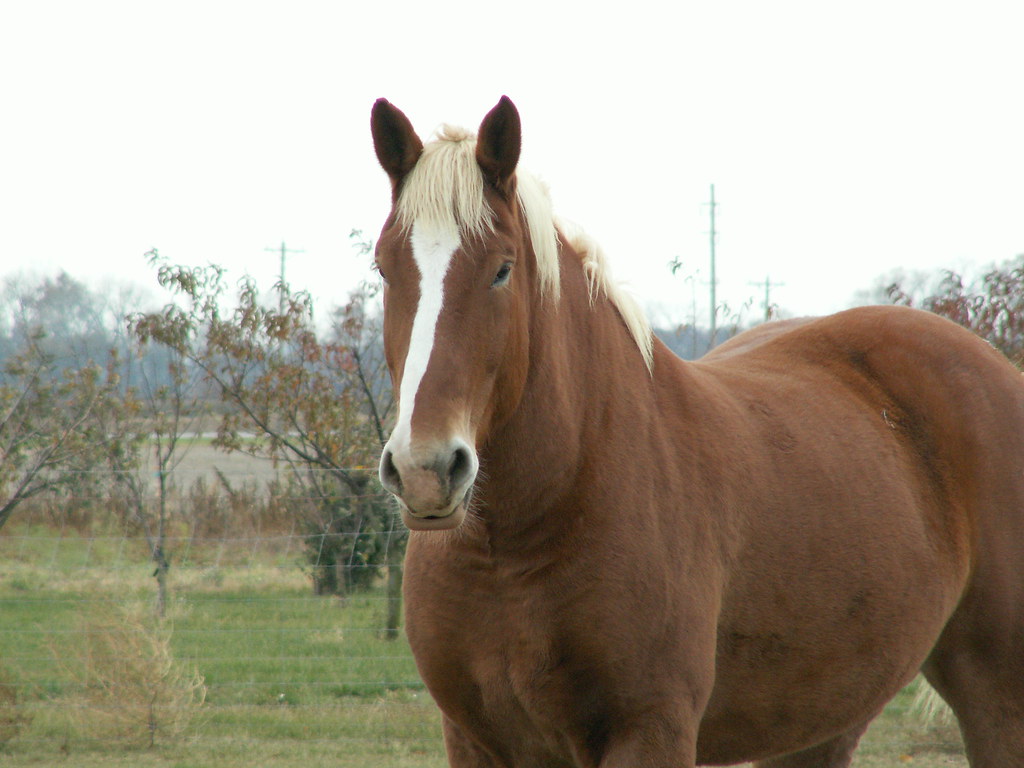
Horse Breeds and Lifespan
| Breed | Average life of Horse |
|---|---|
| American Paint Horse | 28 - 31 years |
| Appaloosa | 28 - 33 years |
| Tennessee Walking Horse | 28 - 30 years |
| Arabian Horse | 25 - 35 years |
| Miniature Horse | 25 - 35 years |
| Quarter Horse | 25 - 35 years |
| Icelandic Horse | 25 - 30 years |
| Shire | 25 - 35 years |
| Percheron | 25 - 35 years |
| Clydesdale | 25 - 35 years |
| Belgian Draft Horse | 25 - 35 years |
| Thoroughbred | 25 - 28 years |
| Norwegian Fjord | 20 - 25 years |
| American Quarte Horses | 20 - 25 years |
| Gypsy Horse | 20 - 25 years |
| Friesian | 16 - 18 years |
| Mustang | 14 - 20 years |
The Oldest Horse Ever Lived to 62 Years Old
Admired and beloved, the oldest horse is ever known to have lived an astonishing sixty-two years old. His name was Old Billy, and he was born in England in 1760.
Bred by Thomas Ershey, Old Billy spent his entire life working on a barge along the Bridgewater Canal. At fifty-two years old, Edward Thatich bought him after noticing how well he hauled barges of coal day after day. The amazing horse earned a place in the Guinness World Record as the world’s oldest known horse.
When liveried peacefully into death at sixty-two years old in 1822. There is still extensive admiration for this incredible creature and his unusual longevity – a much-celebrated testament to hard work and resilience.
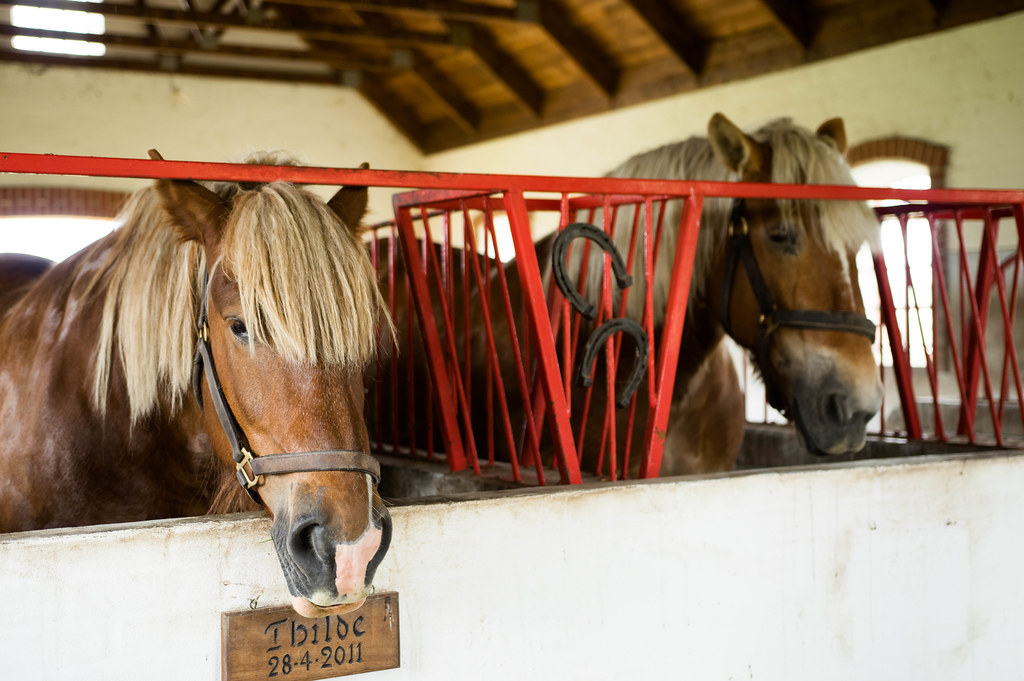
How Can you Help a Horse Live Longer?
Caring for a horse can be complex and rewarding, emphasizing meeting the animal’s needs to maximize its Lifespan. Maintaining a healthy diet is critical as this provides vital nutrients that strengthen the horse’s immune system. Allowing it to become more resilient against disease and illness.
Factors such as regular medical checkups. Vaccinations and parasite control play important roles in preventive health care. Keeping your horse in shape by providing adequate exercise and turnout not only keeps it healthy. But also helps promote mental well-being.
Further steps, such as comfortable bedding, help avert joint stiffness and relax sore muscles. Following these best practices can help ensure that your beloved equine companion lives a long and happy life.
Always keep in mind that your horse will need regular veterinary care and timely deworming and vaccination against:
- Equine rabies
- Tetanus and botulism
- Equine influenza
- Equine viral arteritis
- Strangles
- Equine herpesvirus (EHV-4 and EHV-1)
- Equine encephalomyelitis
- West Nile virus
- Rotavirus
- Potomac horse fever
Adult Horses
Adult horses can reach remarkably long life spans if given proper care. One of the most important components of caring for a horse is its diet. Adult horses should be provided with ample protein and other necessary vitamins and minerals to ensure their bodies remain strong and healthy.
Exercise is also key – regular physical activity helps to keep them fit, agile, and active over their long lives. Regular grooming should not be overlooked, either. It keeps their coat soft and lustrous. Make sure that their skin remains healthy underneath. Above all, providing your horse with love and companionship helps promote a long life full of happiness.
Young Horses
Providing young horses with the proper nutrition, care, and environment is essential to ensure their longer-term health and well-being. Young horses need ample amounts of both roughage and concentrate feeds. So an adequate diet must be provided. It is also important to ensure that a horse has access to clean, fresh water at all times.
Young horses require regular farrier visits for hoof trimming and veterinary checkups twice a year. To reduce stress levels for young horses, allowing them plenty of turnouts can help keep boredom at bay and maintain their physical fitness.
Lastly, providing companionship through either herd mates or human interaction can go a long way in helping young horses remain healthy throughout their lives. By taking these steps early on in a horse’s life, you can help it live longer!
Senior Horses
Senior horses are fifteen and older, and helping them live longer requires special care. Proper nutrition, increased exercise, and regular veterinary visits are key components in providing the best care for horses in their elderly years. Quality feed that includes Senior formulas specifically designed to meet the needs of the aged.
Horses should replace basic grains, and supplements, including joint support, will help improve the range of motion. Regular grooming and hoof trimmings maintain comfort levels, while varying exercise routines tailored to their stamina will reduce stress while increasing longevity. Well-rounded care is essential for senior horses to add more healthy years of life as they enjoy their golden years.
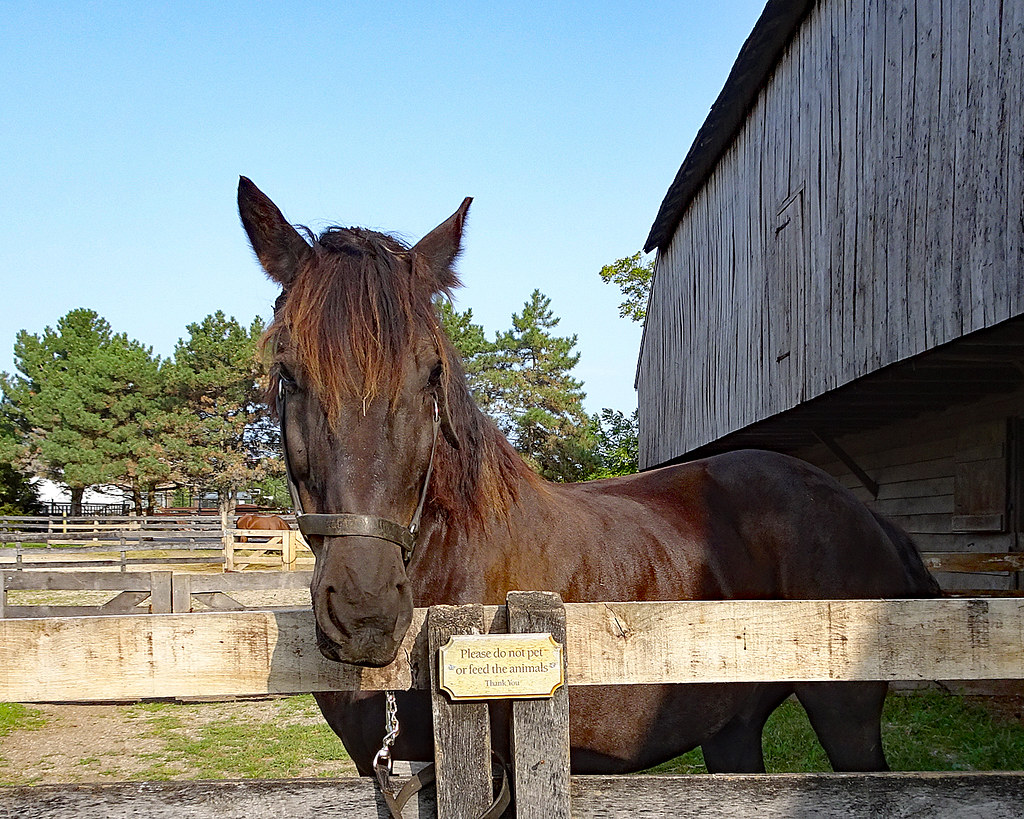
Which Horse Breed Lives the Longest?
Many people ask how long horses live – the answer is that it largely depends on the breed. While most horses typically live for 20 to 30 years, one horse breed stands out for its longer lifespans: Arabian horses.
These beautiful animals can often live to be over 40 years of age, with some reports showing them reaching even into their 60s in rare cases. The genetic makeup of Arabians allows them to outlive other breeds; combine that with proper care and nutrition, and they can enjoy many happy decades in their stall or pasture.
How to Determine the Age of a Horse?
Determining the age of a horse can be tricky as it is not always obvious or documented. How long a horse lives varies from breed to breed and is determined through observing physical characteristics such as the length, thickness and texture of the coat and mane; the overall body condition; and the development of mature features such as teeth, feet, and bones.
Veterinarians have developed techniques to age horses more accurately, such as evaluating dental formations or taking measurements of bones found in a horse’s legs. Estimating a horse’s age accurately is important since it helps determine their health and fitness needs – normally, horses live until they are around 20-25 years old. Still, this life expectancy can vary widely between breeds.
Teeth Marks indicating the Age of a Horse
The age of a horse has long been a topic of interest for owners and enthusiasts alike, with experts able to determine its approximate age by examining its teeth. An adult horse will typically display two sets of teeth marks.
The first set, or incisors, are at the front of the horse’s mouth and tend to be discoloured from years of wear. Opposite on the upper jaw is another set which tends to come in by 5-6 years of age. This information can then be used to assess the horse’s age accurately. Unlike humans, horses never lose their baby teeth – therefore, if the second set hasn’t come in yet, it can be assumed that the animal is not yet fully grown. This method may seem outdated, but after more than 100 years, it is still one most reliable ways to judge a horse’s age accurately.
Rough Coat
Determining the age of a horse isn’t always an easy task. Still, horse owners can use several helpful tips to make an educated estimation. For instance, viewing the teeth may provide some clues.
Young horses will have baby teeth that are sharper and more rounded at the tips compared to an older animal’s worn-down, flatter molars. Rough coats or thinning manes are also tell-tale signs of ageing. The coat of a mature horse will be coarser and thicker than that of a younger animal. It can also be helpful to consider any scars or calluses for further insight into the age and length of ownership.
Ultimately, through close observation and confirmation from a veterinarian or experienced horse trainer, you should have no problem accurately pinpointing your equine friend’s age in no time.
Causes of Early Death in Horses
How long a horse lives can depend on many different factors. Common causes of premature death in horses include colic, infections and injuries. However, the most frequent cause of death is old age. Poor nutrition, neglect, and irregular veterinary visits can also directly affect the longevity of a horse’s life.
Additionally, domestic and feral horses are more likely to succumb prematurely to diseases or accidents due to environmental pressures such as encountering predators or vehicles on roads.
The average life expectancy for healthy horses is 25-30 years. However, it is often shortened by these literal and figurative roadblocks that prevent them from reaching their full potential.
Signs of Aging in Horses
Horses, on average, have a life expectancy of around 25 years and begin to show signs of ageing, typically from 15-20 years. Although the first few signs of ageing may not be detectable by the naked eye, some tell-tale signs stick out; for example, horses will develop white hairs around their eyes and muzzle that are more recognizable as they age.
Other issues, such as lameness in their legs, losing muscle tone, a dull coat or slow recovery time after exercise, may become apparent as the horse ages. A decrease in performance is also an indicator that a horse may just be entering its senior years. Paying close attention to signs of ageing and understanding that endless love and care while their energy is waning can help these treasured animals live out their last days with dignity.
Poor teeth
Another common sign of ageing in horses is poor teeth. As a horse matures, its teeth become worn and need regular care to remain healthy. Regular cleaning and careful dental health monitoring can help prevent tooth loss or damage in older horses.
Reduced Nutritional Absorption
As a horse age, its digestive system is not as efficient at absorbing nutrition. This can lead to deficiencies in key vitamins and minerals that are essential for overall health and well-being. Feeding small, frequent meals ensures that the horse receives all the necessary nutrients to remain healthy. Additionally, introducing supplements to their diet can help ensure they get all the necessary vitamins and minerals to remain in optimum condition.
Increased Stress
As horses get older, they can become more susceptible to stress. Everyday routines such as grooming or exercise may cause an increase in their heart rate and breathing, which can lead to fatigue and discomfort. Awareness of this and monitoring their stress levels properly is key in ensuring that older horses remain healthy and happy.
Making sure that an older horse gets plenty of rest and can take it slow can help reduce unnecessary stress on their bodies.
Tell me the Best way to Extend the Life Span of Horses
Some Key Points:
- Exercise is essential for a long life
- Complete Dental Care
- Proper Foot care
- Fulfil Body Nutrition
- Adequate Rest
- Don’t be Obesity
- Keep your horse’s vaccinations current
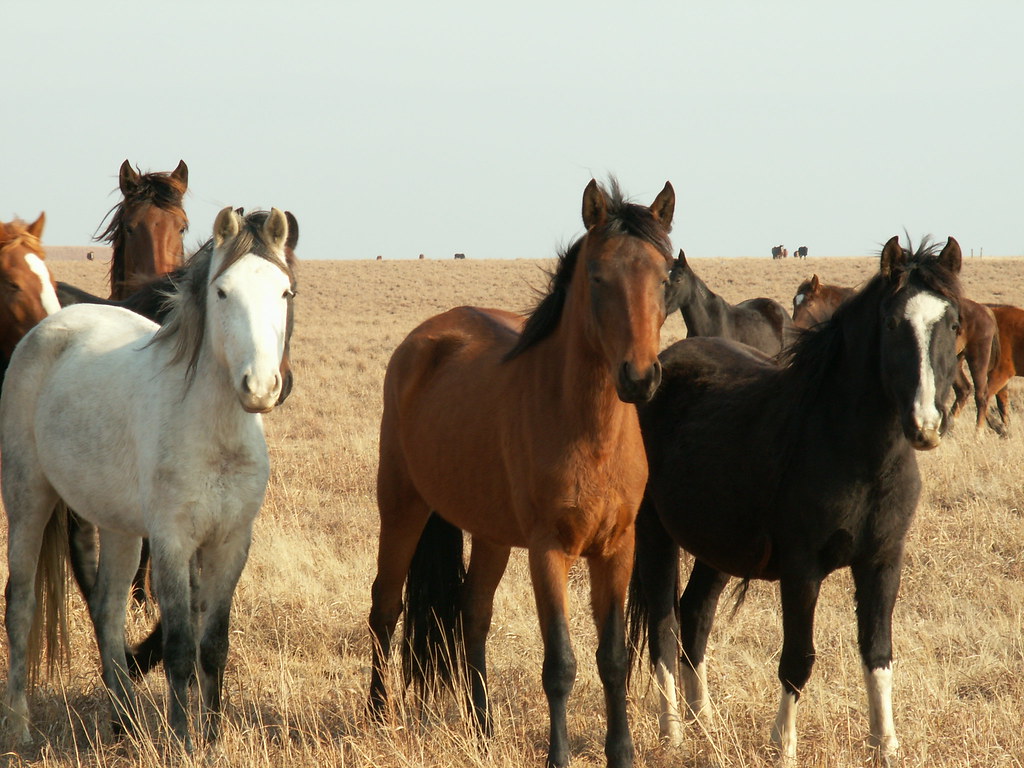
Do some breeds of Horses Live Longer than Others?
Yes, some breeds of horses tend to live longer than others. Generally, larger horse breeds such as draft horses and warmbloods have a longer life expectancy than a smaller pony or Arabian breeds.
Additionally, certain horse bloodlines within each breed may also be known for having increased longevity due to their genetics. Proper nutrition and care are the most important factors in helping horses live long and healthy life.
Additionally, providing a safe, stress-free environment for the horse to grow old should also be considered. It is also beneficial to provide regular medical checkups with your veterinarian, as this will help ensure that any age-related diseases or problems are diagnosed early on. With proper care and attention, horses of any breed can live long and happy life.
Do wild Horses Live Longer than Domestic Horses?
In general, wild horses tend to live longer than domestic horses. This is because wild horses can freely roam and forage in their natural habitats and have access to a wide variety of food sources. Wild horses typically live in larger herds with other horses, which can offer them physical and social support. Wild horses also tend to have less stress in their lives as they are not subject to the same workloads or environmental changes as domestic horses. However, wild horses also face increased risks from predators and environmental factors such as drought or extreme weather conditions.
What Breed of Horses Live Longest?
Generally, larger horse breeds such as draft horses and warmbloods have a longer life expectancy than a smaller pony or Arabian breeds. Additionally, certain horse bloodlines within each breed may also be known for having increased longevity due to their genetics. Draft horses, such as the Clydesdale, are known to have the longest life expectancy (up to 25 years) due to their strong and hard build.
Other horse breeds that tend to have a long life expectancy include the Fjord, Morgan, and Dutch Harness Horse. Proper nutrition and care are the most important factors in helping horses live long and healthy life. With good care, any breed of horse can have a long life span.
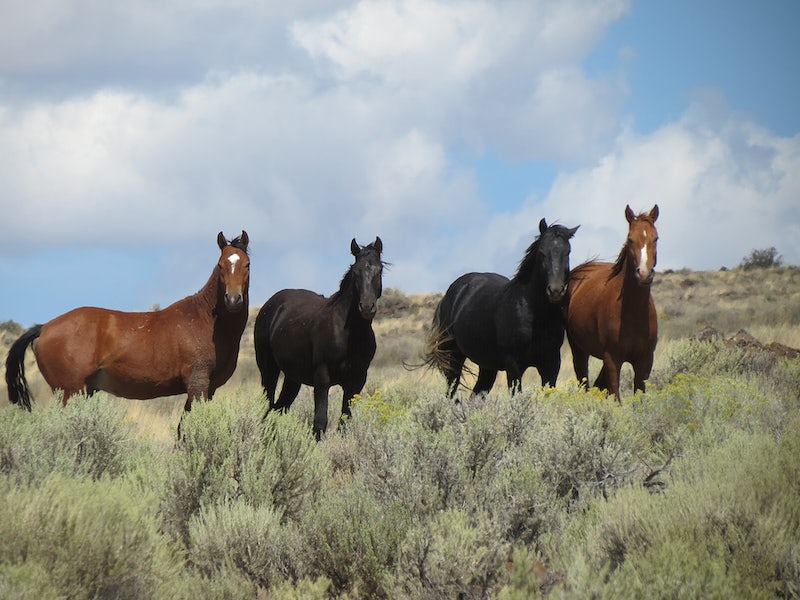
More Articles:
The Importance of Doxycycline in Horses. A complete guide in 5 minutes.
Excede Antibiotic For Horses, Fantastic facts in 5 minutes
The Science of Oxytocin in Horses: How This Hormone influence Equine Behavior
Can Horses Swim? Everything You Need To Know About Horse Swimming
Navicular Disease in Horses: Signs Causes & Treatment


